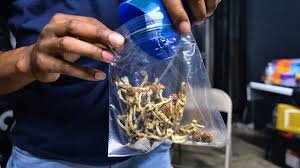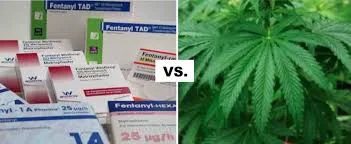"Magic Mushroom" Ingredient Inches Closer to Becoming a Depression Treatment
By Ed Cara
A future where a key ingredient of psychedelic mushrooms called psilocybin is regularly used to improve our mental health is none too far off. This month, the Food and Drug Administration (FDA) granted a “breakthrough therapy” designation to a non-profit company developing psilocybin as a treatment for clinical depression. The label is intended to speed up the review process needed for approval.
As far back as the 1970s, some therapists have used the mind-altering effects of hallucinogenic compounds like psilocybin to treat their patients’ depression or anxiety (usually alongside conventional therapy). But as these compounds became popular recreational drugs, governments around the world banned their use entirely, including in a medical setting. Over the years, though, advocates have slowly convinced regulatory agencies like the FDA to reconsider this stance, especially given the lack of options available to people who don’t respond to typical antidepressants (which may be as high as 55 percent of all patients).
The newer clinical trials of psilocybin have largely focused on more challenging cases of depression or helping people living with severe illnesses like cancer process their anxiety. Last year, for instance, the FDA granted a breakthrough therapy label to the company COMPASS Pathways for developing psilocybin as a last resort drug for treatment-resistant depression.
But the new designation, given to the Wisconsin-based organization Usona Institute, is even more meaningful since it’s for the development of psilocybin as a standard treatment for clinical depression, otherwise known as major depressive disorder (MDD).
“What is truly groundbreaking is FDA’s rightful acknowledgement that MDD, not just the much smaller treatment-resistant depression population, represents an unmet medical need and that the available data suggest that psilocybin may offer a substantial clinical improvement over existing therapies,” Charles Raison, director of Clinical and Translational Research at Usona, said in a statement released by Usona.
Though a breakthrough therapy designation speeds up how quickly the FDA will work on reviewing clinical trial data and make its decision on an approval, don’t expect magic mushrooms to end up on your therapist’s shelf that quickly. Currently, Usona is recruiting patients for its Phase 2 clinical trial, which it hopes to start in full swing by next year. But even should the trial be successful, it’ll still take a larger Phase III trial (and preferably at least two for typical new drugs) before the FDA would approve psilocybin for clinical depression.
Compass Pathways, the company now working on the largest scale clinical trial of psilocybin for treatment-resistant depression, has said it expects to bring psilocybin to the market within the next five to ten years. Elsewhere, the movement to legalize the use of magic mushrooms wholesale in the U.S. has also picked up steam; Oakland followed Denver’s lead to become the second U.S. city to decriminalize its use this past June.
Article/Source: https://gizmodo.com/magic-mushroom-ingredient-inches-closer-to-becoming-a-1840067194







